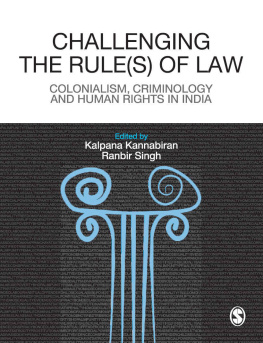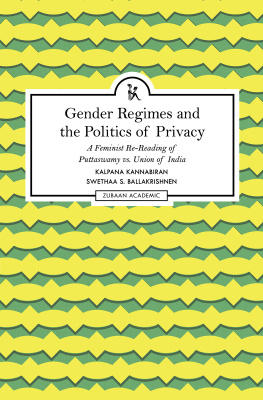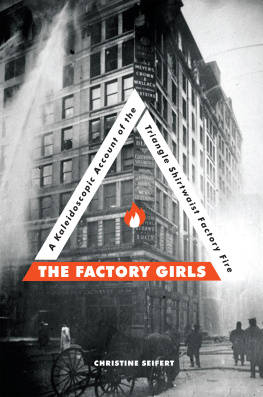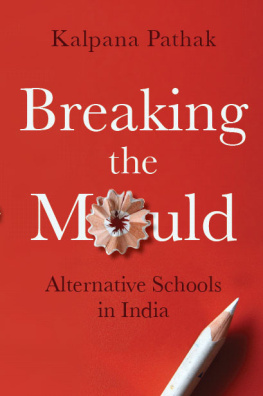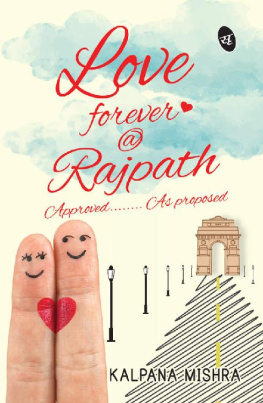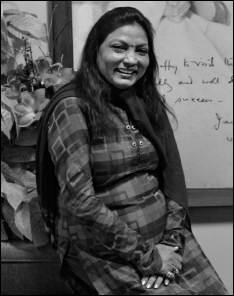Penguin Books is part of the Penguin Random House group of companies whose addresses can be found at global.penguinrandomhouse.com.
This digital edition published in 2016.
This book is sold subject to the condition that it shall not, by way of trade or otherwise, be lent, resold, hired out, or otherwise circulated without the publishers prior consent in any form of binding or cover other than that in which it is published and without a similar condition including this condition being imposed on the subsequent purchaser.
Let the conversation begin...
UNLIMITED IMAGINATION
KALPANA SAROJ CAME TO Mumbai for the second time at the tender age of fifteen. The first time was as a twelve-year-old bride from Rupar Khera, located in the Vidarbha region in the Akola district of Maharashtra. However, she was subjected to such atrocities by her husbands family that she was forced to return to her village soon after.
The second time around, Kalpana had come looking for work and had finally found a job at a hosiery factory in Dadar, which paid her Rs 2 a day. Even though she had found a job, she felt that she wouldnt be able to survive in a city as huge as Mumbai. She was used to the one road her village boasted ofnot Mumbai with its hundreds and thousands of people and its labyrinth-like layout. She had still not been able to get used to the speed of the trains or understand their routes.
One day, Kalpana took a train to go from Lower Parel to Dadar, where she lived. There is only one stop on the Western Line between the two stations, and the journey typically takes five to seven minutes. However, this time, a considerable amount of time had passed and Dadar was still nowhere in sight. Actually, Kalpana had mistakenly got on to a local train going towards Churchgate, which is in the opposite direction. When the train reached Churchgate, the crowd pushed Kalpana, throwing her on to the platform. She recalls how people literally walked over her as she lay lost and helpless. When the crowd thinned, she shakily got back on her feet. Luckily, one woman took pity on the weeping girl and asked her what the matter was. Kalpana told her she had wanted to go to Dadar, but couldnt understand the indicator. If youre an outsider, you cannot move around in Mumbai trains without following the indicator. The woman patiently explained how to decipher it and Kalpana was able to take the train to Dadar and reach home.
This incident took place forty years agothe world has changed since then. The same Kalpana Saroj who was pushed around for Rs 2 a day is now the chairperson of her own company, Kamani Tubes Limited. Located in the most prestigious business address in India, Ballard Estate, her office is just 4 kilometres from Churchgate, where she was once trampled upon. Today, she lives in Kalyan, a Mumbai suburb, and drives to her office in a Mercedes-Benz. The offices of the most established companies in India are in the same neighbourhood, including the office of Mukesh Ambani of Reliance Industries, and the Wadia familys office, Neville House. But for the tea shops and the little black-and-yellow cabs, this area could easily pass off as a London area. Sitting here, in the British-style stone building she owns, Kalpana runs a business empire worth Rs 1000 crore.
A hundred years ago when Ballard Estate was being built, Kalpanas ancestors were still living a miserable life 600 kilometres away in the village of Rupar Kheda. Born into a Dalit family, her grandfather was a farm labourer. He educated his son Mahadev up to class seven, who, after years of struggle, managed to join the police as a havildar. The Rs 300 he earned each month was insufficient for a family of six siblings.
Kalpana was not only the eldest amongst her brothers and sisters, but also the cleverest at studies. After school, she used to help her family out with household chores such as preparing cow-dung cakes or fetching dry twigs to use as cooking fuel at home. Kalpana says she always wanted to study, but her uncle said girls were poison pills and should not be kept in the house.
Bound to someone elses whim, Kalpana was married off at twelve, when she was only in class seven, and her husband was twenty-two years old. According to the Child Marriage Restraint Act of 1929, this is a crime which could have landed both her father and husband in jail for three months. But tradition and social customs meant more to her family than the law. Their refusal to see beyond social mores led them to send Kalpana into virtual imprisonment in her husbands house in Mumbai.
Like every newlywed bride, Kalpana too must have had her dreams; but they were shattered even before they took shape. Kalpana says her in-laws house was worse than hell. She had to wake up every morning at four and start on her long list of household chores. She cooked for twelve people, washed the dishes, cleaned the house and was beaten for any mistakes. She was dragged by her hair and repeatedly reminded that her mother hadnt taught her anything. Kalpana had no option but to live this life as she was not allowed to write letters or communicate with her parents in any way.
After six months, when her father came to visit her, he could hardly recognize her, given her dismal state. He wanted to take his daughter back home, but her in-laws didnt let her go, telling him his daughter was useless. Her father returned to the village only to come back in his police uniform. This time, he brought Kalpana back to Rupar Kheda. After this, she vowed she would never go back to the city after having been through such hell.






